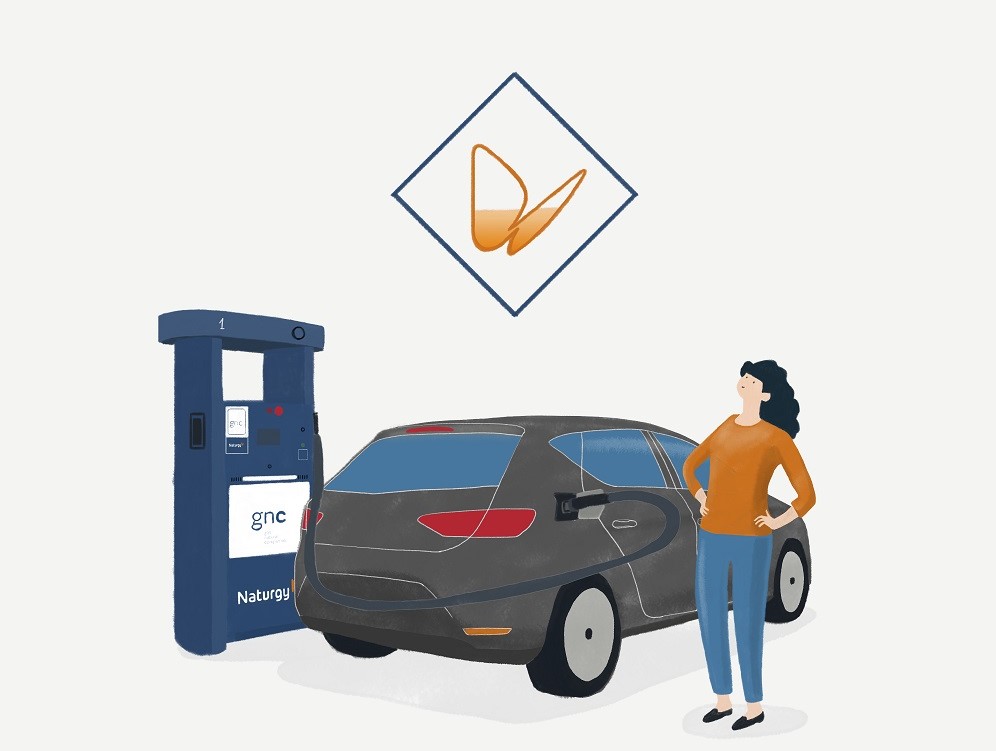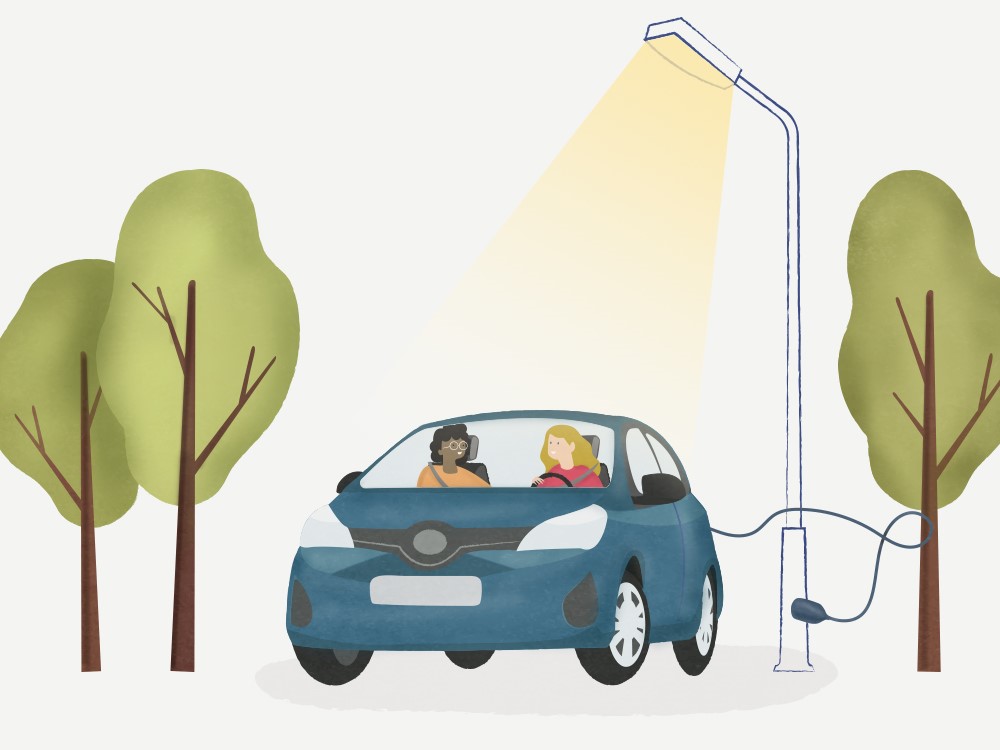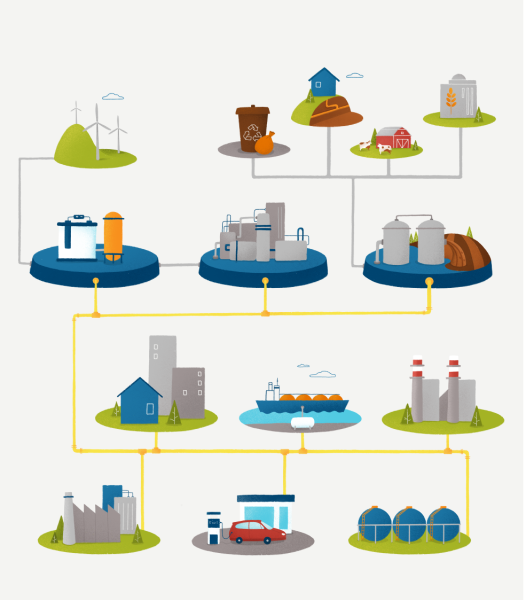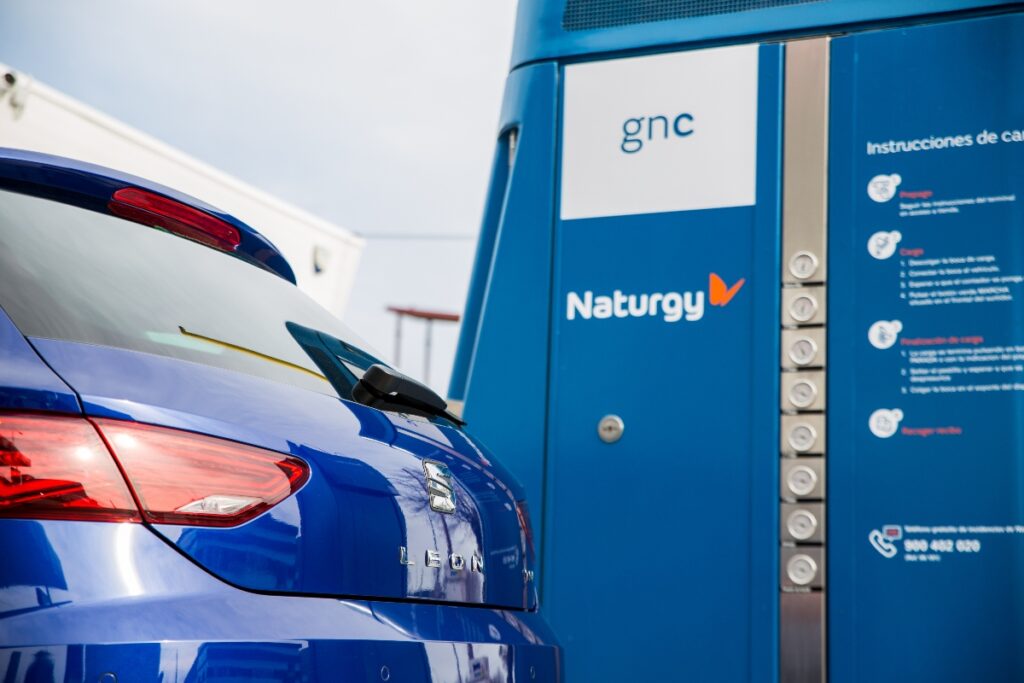Home / About us Naturgy / The Energy / Sustainable mobility
Sustainable mobility
The future belongs to those who choose an ECO-label vehicle

One of our goals is to develop sustainable mobility solutions
We are in the middle of a revolution that is changing our approach to mobility. The need for travel options that minimise environmental impact is opening up opportunities for other energy sources, such as electricity, natural gas and hydrogen. New mobility services are emerging that reduce the number of motor vehicles in our cities while maintaining availability levels.
That’s why we work to offer sustainable mobility solutions for cities and land and sea transport that reduce GHG emissions and also air pollution, helping improve air quality.
Today, we firmly believe in sustainable mobility, both in heavy and light transport, through the use and development of biomethane, green hydrogen, electricity and NGV, which we have been working on for years.
We're committed to sustainable mobility
Gas mobility

Since natural gas has lower emissions than other fossil fuels, it can help decarbonise transport, especially heavy-duty transport, where electrification is not foreseeable in the short to medium term.
Progress has continued in the roll-out of natural gas vehicle (NGV) refuelling infrastructure for public use around Spain, oriented towards a transformation to BioNGV. We currently have 13 facilities in Spain.
Moreover, the NGV refuelling station infrastructure can be used for both biomethane —thereby favouring the development of this fuel— and for hydrogen —either through blending with natural gas or through synergies due to the similarity of the business model— which makes it possible to share common sites and development. This is why NGVs oriented towards BioNGV continue to be a growth vector for the energy transition in heavy-duty transport.
Electric mobility
Not only do we drive the improvement of natural gas mobility, but we have also carried out important projects in the field of electricity-based mobility. To do so, we have implemented comprehensive and personalised electric mobility solutions that allow customers to enjoy their own electric vehicle charging station.
This value proposal is contextualised in services such as Naturgy recarga, a comprehensive and personalised electric mobility solution that allows customers to enjoy their own electric vehicle charging station.
In addition, we are committed to developing a network of chargers that will give all citizens access to a universal and open electricity recharging service. The plan is based on the deployment of an urban customer proximity network with low-power public chargers and a capillary network of rapid chargers that provides safety to the electric vehicle user in the main communication axes.

Types of gas for mobility
Part of the circular economy strategic action plan involves the numerous initiatives that are being implemented in the field of renewable gases, with the aim of promoting this alternative energy vector which has huge potential in terms of the development of sustainable mobility.

Renewable gas: benefits and potential
- All renewable gases help to reduce greenhouse gas emissions and are key to the decarbonisation of the energy system, as they avoid the CO emissions from the natural gas they replace. The potential for reducing GHG emissions could be as high as 35 Mt CO2eq/year, in other words, over 15% of the total emissions forecast for Spain in 2030.
- The renewable gases produced from organic waste are not only carbon neutral but may even achieve negative CO2 emissions by acting as a sink and removing greenhouse gases from the atmosphere. This is the case with biomethane from livestock manure, which under current systems of management produces GHG emissions. Transforming that waste into renewable gas can prevent 200% of the CO2 emissions corresponding to the fossil fuel replaced from entering the atmosphere.
- In addition, this circular model has other advantages, such as improvements to the environmental management of organic waste, such conflictive forms of organic waste such as livestock manure, slurry, manure, poultry manure, sewage sludge or the organic fraction of household waste, also avoiding the undesirable effects these have on people and biodiversity through water pollution, foul odours, etc.
- From the social point of view, it helps with local rural development, establishing jobs and populations in agricultural and livestock environments by reducing their external energy dependency, and at the same time the country’s energy bill.
Vehicular natural gas (VNG) can be supplied as compressed natural gas (CNG) or liquefied natural gas (LNG).
VNG, both when used as compressed natural gas (CNG) for light transport and as liquefied natural gas (LNG) for ships and heavy transport, is set to become the transport fuel of the future thanks to its multiple advantages.
We have over 25 years of experience in natural gas mobility solutions, and we have been pioneers for over 20 years in the development of a loading infrastructure for large fleets.

Advantages of vehicular natural gas
- It is an environmentally-friendly fuel that contributes to improving air quality as a result of its low emissions.
- Vehicles that use this fuel bear the ECO label from the Spanish Directorate-General of Traffic (DGT), and enjoy benefits including free access to city centres at times when air pollution levels are high, as well as tax incentives and discounted rates in regulated parking areas.
- It also cuts emissions of CO2, the main greenhouse gas, by up to 24%, thereby contributing to the fight against climate change.
- Natural gas is a very competitive fuel, being up to 50% cheaper than petrol and 30% cheaper than diesel.
- Natural gas almost eliminates pollutant emissions that affect health. It reduces nitrogen oxide emissions by more than 85% and suspended particulates by almost 100%, which are the main causes of respiratory and heart problems stemming from pollution in urban environments. It has almost no emissions of NO, NO2 and particulate material, the main atmospheric pollutants in our cities.
- It helps reduce noise pollution. Natural gas engines are less noisy and vibrate less than diesel engines.
You can see all our natural gas refuelling points in Spain and Portugal here.